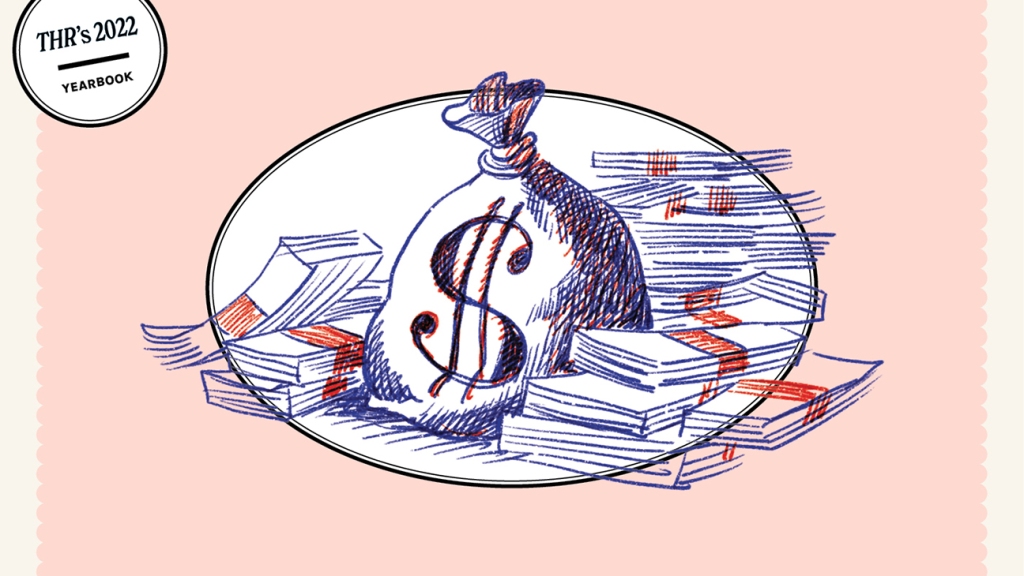
It’s hard to believe, but at the beginning of this year Bob Iger was retired from Disney, Netflix seemed like an unstoppable juggernaut in the entertainment business, and ViacomCBS was still a thing (hello, Paramount!). For the entertainment business, 2022 was a year of change and transformation, in corporate names, in executive leadership, and in strategy. In an “everything old is new again” moment, recession fears and subscription slowdowns forced major pivots to familiar game plans. And in one critical area, it seemed, the macroeconomy may as well not be a problem. Provided you’re a A-lister, at least.
Saddest Trend: Layoffs Everywhere
Warner Bros. Discovery says it could spend as much as $1.1 billion on restructuring charges. AMC Networks says it’s cutting 20 percent of its employees. NBCUniversal is offering early retirement packages in anticipation of cuts in the coming months. Paramount has begun layoffs in key departments like ad sales and TV studios. Disney, under new (old) CEO Bob Iger, is restructuring its distribution division (DMED), and other cuts may follow. “The restructuring and change in business strategy, once determined, could result in impairment charges,” the company warned investors in November.
As the media and entertainment sector is beginning to feel the pain of a potential recession, it’s tough to find a media company that’s not handing out pink slips. After years of explosive growth, driven by streaming, it seems the entire sector is in contraction mode once more. The layoffs and cuts come as every major player in entertainment seeks to reposition itself for profits, abandoning the scale-at-all-costs strategy that has dominated the industry for years, all in the name of catching up to Netflix (which also laid off hundreds of employees this year). Ad-supported businesses (see left) are particularly feeling the pinch as marketers preemptively trim their budgets (ad spending is always the canary in the recessionary coal mine). Now the question on the mind of every C-suite executive is whether 2023 will bring stabilization or more turmoil — and even deeper cuts.
Most Unwelcome Comeback: Commercial Breaks
When Netflix transformed the entertainment business through streaming and binge-watching, it also made a critical decision: It wouldn’t have ads. Executives at the company chalked it up to a premium consumer experience. Fifteen years later, however, the company has changed course and launched an ad-supported tier.
“You’re right to say I didn’t believe in the ad-supported tactic for us. And I was wrong about that,” CEO Reed Hastings admitted Nov. 30 at the New York Times DealBook Summit. “Hulu really proved that you could do that at scale and offer consumers lower prices. And that was a better model.”
But Netflix isn’t alone. Disney+ also launched without ads, and in early December added them. HBO, like Netflix, never had ads … until HBO Max added them in 2021. Ad-free may stick around as an option, but the completely ad-free streaming service may soon go the way of the dodo (or, soon, the Peacock?).
“I think that over the long term, people are going to want to really be focused on extending the length of the relationship with a consumer,” says Jana Arbanas, technology, media and entertainment leader for the consultancy Deloitte. “A free, ad-supported service that enables someone to maintain that service for years and years as opposed to a set of months … you’re extending the life of the relationship with your consumer, you’re learning more about that consumer and therefore being able to serve relevant ads.”
It’s a back-to-the-future moment for entertainment, which has been proudly ad-supported since the Bulova watch company ran a 10-second commercial during a Brooklyn Dodgers-Philadelphia Phillies game in 1941.
Most Likely to Succeed: Any Celeb Willing to Take Private Equity Money
The economy might be melting down, but private equity’s desire to invest in the celebrity entertainment complex remains red hot. Consider Ben Affleck and Matt Damon. The Oscar winners and A-listers launched a production company in November called Artists Equity, in partnership with Gerry Cardinale’s RedBird Capital.
Said Cardinale in an MBA-jargon-laden talk at the New York Times DealBook Summit, “It was much more of an entrepreneurial, founder conversation about how do we build a term value business that takes advantage of the technology disintermediation that’s going on in content monetization, and create the next new thing.”
And while the talent associated with the company will always tout the bigger meaning behind the move (“I want to use the second act of my life to create a meaningful, robust company that develops a new model to tell stories in a different way, and pays artists in a different way, including behind the camera,” Affleck said at the summit), for private equity firms still flush with cash, the talent provides a unique way into a crowded marketplace.
After all, who wouldn’t want to work with Reese Witherspoon (Hello Sunshine/Candle Media), or LeBron James (SpringHill/RedBird), or Tom Brady and Michael Strahan (Religion of Sports/Shamrock Capital), or Will Smith (Westbrook/Candle Media) — maybe too soon to say on that last one.
And the money train shows few signs of hitting the brakes. Peyton Manning’s Omaha Productions is in talks with Peter Chernin’s North Road. And on Dec. 10, French conglomerate Mediawan said it would take a majority stake in Brad Pitt’s Plan B production company that values it in the hundreds of millions.
This story first appeared in the Dec. 16 issue of The Hollywood Reporter magazine. Click here to subscribe.

